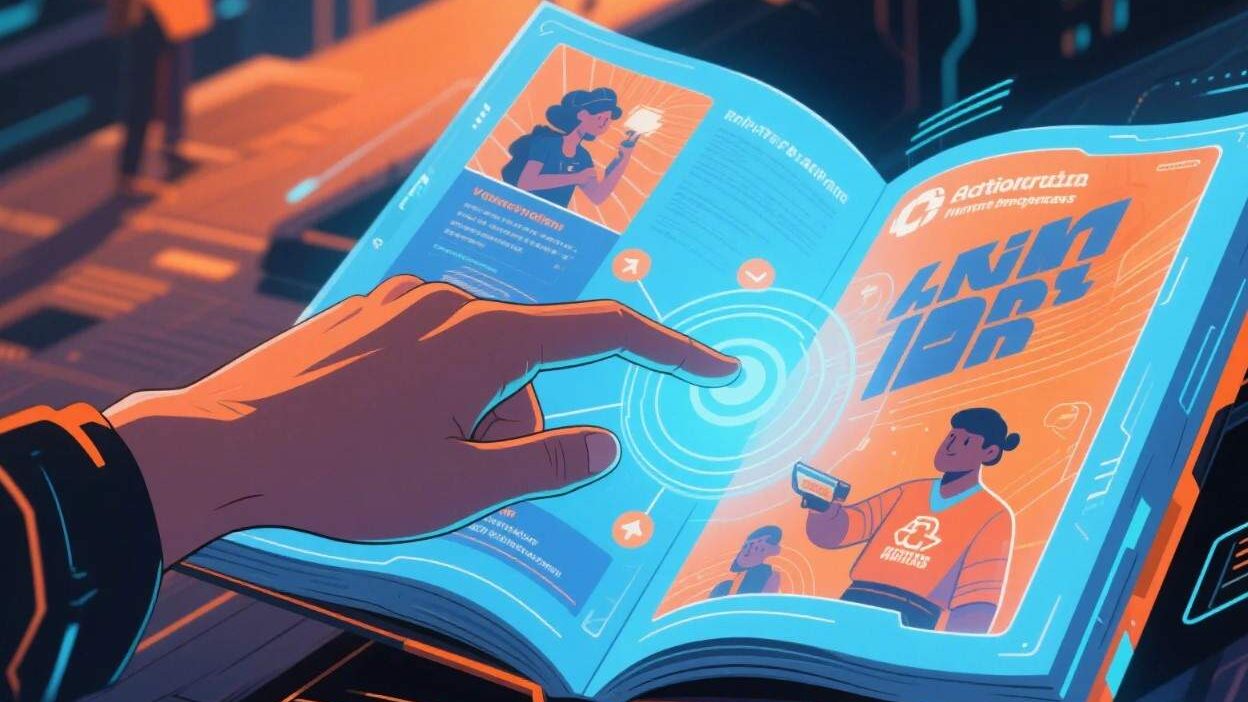When Your Story Becomes a Movement
Imagine flipping through the pages of a novel, only to realize your choices—whether to forgive a character, support a cause, or take a stand—don’t just shape the story. They change the world. Welcome to the future of interactive storytelling: interactive novels where choices drive real-world impact. These aren’t just books—they’re bridges between fiction and action, where every decision you make ripples beyond the page, funding charities, sparking movements, or even rewriting policies. This report explores how these novels are redefining reading, turning passive consumers into active agents of change.
What Are Interactive Novels with Real-World Impact?
Interactive novels have long been a niche genre, blending storytelling with choice (think Choose Your Own Adventure). But today’s innovators are taking it further: these novels tie reader decisions directly to tangible real-world outcomes. Whether it’s a climate crisis narrative where choosing solar energy triggers a donation to a solar co-op, or a refugee story where supporting a character’s asylum bid funds legal aid, the story’s momentum is fueled by your actions.
Unlike traditional fiction, where the plot is fixed, these novels are dynamic. Your choices don’t just alter the narrative—they activate real-world tools: petitions, donations, community projects, or policy advocacy. It’s storytelling with a mission: to educate, empower, and drive change.
How Choices Translate to Real-World Causes
The magic lies in the mechanics: how do fictional choices become real-world actions? Here’s how it works:
1. Donation Triggers: Your Choice Funds Real Projects
Many interactive novels partner with nonprofits, charities, or NGOs. When you make a choice—say, “Fund a community clinic” instead of “Invest in a private hospital”—the novel redirects a small donation (often 5) to a partner organization. For example:
- A novel about maternal health might donate to Women’s Health International every time a reader chooses to advocate for prenatal care.
- A climate-focused story could partner with The Ocean Cleanup, with readers’ choices funding plastic removal expeditions.
2. Advocacy Campaigns: Your Voice Amplifies Real Movements
Novels often embed links to petitions, social media campaigns, or local initiatives tied to their themes. For instance:
- A story about LGBTQ+ rights might include a pre-written tweet or Instagram post (with the reader’s handle) to support a pending anti-discrimination bill.
- A historical fiction novel about civil rights could guide readers to volunteer with NAACP or attend a local rally.
3. Community Impact: Your Choice Builds Local Solutions
Some novels focus on hyper-local change, directing readers to support grassroots projects in their area. For example:
- A novel set in a rural town might link readers to a crowdfunding campaign to rebuild a community center.
- A story about food insecurity could connect readers to Feeding America, with choices determining which food bank receives a shipment.
Pioneering Projects: Stories That Changed the Game
Several trailblazing novels and platforms are proving that fiction can drive real change:
1. The Climate Crisis Chronicles (2023)
This interactive eBook, published by EcoFiction Press, follows a family navigating a flooded city. Readers choose between “Fight” (advocate for green policies) or “Flight” (relocate). Each choice triggers a 1.2 million, funding solar microgrids in Bangladesh and flood-resilient housing in Louisiana.
2. The Refugee’s Journey (2022)
Co-created by Save the Children and author J.K. Rowling’s Pottermore, this novel puts readers in the shoes of a Syrian refugee. Choices—like “Share your story online” or “Donate supplies”—directly fund asylum legal aid and school supplies for refugee children. Over 500,000 readers participated, resulting in 12,000+ hours of pro bono legal work and 50,000 school kits distributed.
3. Choice & Consequence (2024)
A platform launched by Penguin Random House, it partners with authors to create serialized novels where readers’ choices shape the plot and real-world outcomes. One recent series, The Plastic Tide, linked readers to Break Free From Plastic, with each chapter’s climax funding a beach cleanup. The project removed 1.5 million pounds of plastic from coastlines in six months.
Benefits: Beyond Entertainment
These novels aren’t just “fun”—they’re transformative. Here’s why they matter:
1. Empowerment: You’re the Hero
Traditional reading is passive. Here, you’re the protagonist. Every choice feels purposeful, fostering a sense of agency. As one reader of The Climate Crisis Chronicles put it: “I didn’t just read about climate change—I fought it.”
2. Education: Stories Teach, Actions Reinforce
Fiction makes complex issues relatable. A novel about food deserts humanizes the problem; a choice to fund a community garden turns empathy into action. Studies show that interactive storytelling increases retention of social issues by 40% compared to textbooks.
3. Tangible Impact: Proving Individual Power
In an era of climate despair or political apathy, these novels prove that one person’s choice matters. A $5 donation from a reader might fund a solar panel for a family in Kenya; a petition signed by 1,000 readers could sway a lawmaker.
Challenges and Ethical Considerations
While groundbreaking, this genre faces hurdles:
1. Measuring Impact: Ensuring Accountability
Not all “real-world effects” are equal. How do we verify that a $5 donation truly funds a solar panel, not administrative costs? Platforms like ImpactTrack are emerging, using blockchain to trace donations and show readers exactly where their money goes.
2. Ethics: Avoiding Guilt-Tripping
There’s a fine line between inspiration and manipulation. Novels must avoid pressuring readers (“If you don’t donate, kids die!”) and instead frame choices as empowering. Authors like Margaret Atwood (a vocal supporter of the genre) stress, “The goal is to educate, not shame.”
3. Complexity: Balancing Storytelling with Logistics
Creating a novel that’s both engaging and logistically feasible is tough. Partnering with NGOs requires negotiating contracts, and tracking donations demands tech infrastructure. Small presses often lack resources, limiting the genre’s growth.
The Future: Where Fiction and Activism Merge
The future of interactive novels with real-world impact is bright, thanks to emerging technologies and a growing demand for purpose-driven content:
- AI-Personalized Impact: AI could tailor choices to readers’ interests (e.g., a reader passionate about animals might see options to fund wildlife reserves).
- Blockchain Transparency: Immutable ledgers will let readers track their contributions in real time, building trust.
- Global Collaborations: Novels could connect readers worldwide to address global crises (e.g., a pandemic story funding vaccine distribution in low-income countries).
Your Story, Your Impact
Interactive novels where choices affect real-world causes are more than a literary trend—they’re a revolution. They remind us that fiction isn’t just about escape; it’s about connection. By merging storytelling with action, these novels prove that every reader has the power to be a hero, one choice at a time.
So, the next time you pick up a book, ask yourself: What if my choices here could change the world? The answer might just surprise you.



